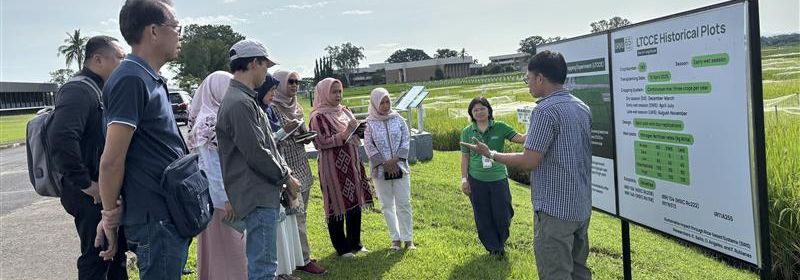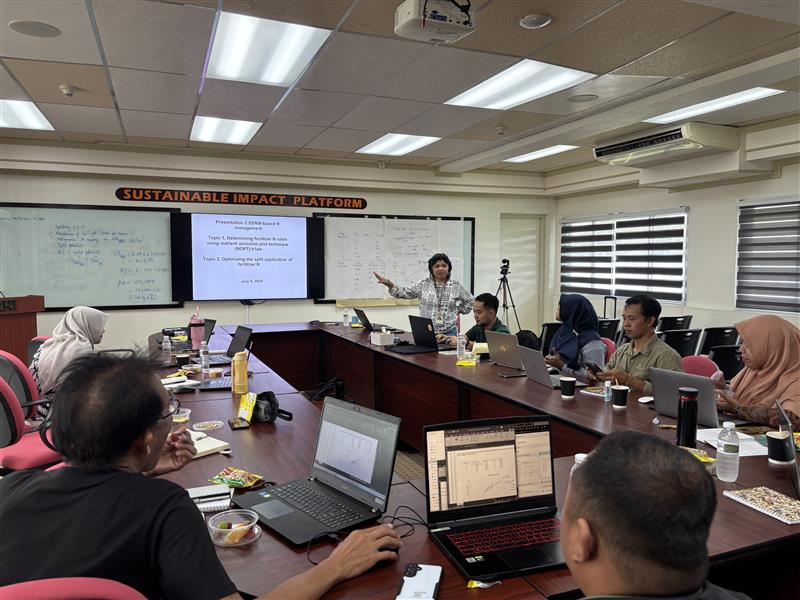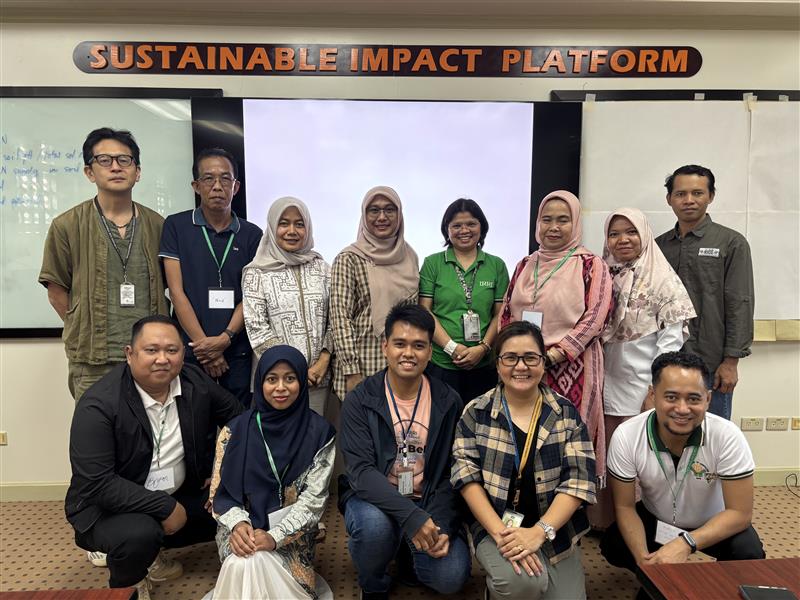
Partners from Indonesia and the Philippines sharpen SSNM expertise through IRRI masterclass
LAGUNA, Philippines, 7 July 2025 — As digital agriculture tools continue to evolve, strengthening national partners’ scientific and technical capacities is crucial to ensuring their long-term effectiveness beyond the project's lifespan. To support this goal, the International Rice Research Institute (IRRI) organized a Site-Specific Nutrient Management (SSNM) Masterclass from 7 to 11 July 2025 at its headquarters in Los Baños, Philippines.
The SSNM Masterclass aimed to deepen the understanding of the scientific principles of SSNM and how those principles were used in developing the Rice Crop Manager (RCM), a digital decision-support tool that provides site-specific recommendations for nutrient and crop management. SSNM provides the foundation for RCM’s algorithms, enabling it to generate tailored fertilizer advice based on farmers’ rice production practices and field-level data. The training brought together participants from government partner agencies in Indonesia and the Philippines, underscoring IRRI’s commitment to building national capacities for sustainable and science-based nutrient management.

RCM has been widely scaled in both countries. In Indonesia, it is known as Layanan Konsultasi Padi (LKP), and it is being scaled through the RCM Indonesia Project, funded by the Ministry of Agriculture, Food and Rural Affairs (MAFRA) of the Republic of Korea. In the Philippines, the Rice Crop Manager Advisory Service (RCMAS) has been formally transitioned to the Department of Agriculture (DA), with IRRI continuing to support national capacity-building efforts. The masterclass was designed to deepen participants’ understanding of the agronomic principles and calculation methods used in RCM. “Building local capacity remains our central focus,” said Dr. Madonna Casimero, IRRI Senior Scientist for Agronomy. “We want partners to understand not just how to use the tool, but the science behind it.”
Led by Ms. Rowena Castillo, IRRI’s SSNM expert, the training used a combination of lectures, group discussions, and hands-on exercises. Topics included key concepts and practices on (1) estimating yield targets, (2) calculating fertilizer rates using nutrient balance and yield gain approaches, (3) managing major nutrients such as nitrogen, phosphorus and potassium, (4) optimizing timing of nitrogen split applications, and (5) formulating field-level fertilizer recommendations.
Dr. Kazuki Saito, IRRI Senior Scientist and Research Unit Lead for Sustainable Soils, encouraged participants to fully engage with the training. “Take full advantage of this opportunity,” he said. “Only a few have mastered SSNM. Your participation brings this knowledge closer to the farmers who need it most.” Participants were expected not only to absorb the content but also to integrate and adapt the learnings into their respective research programs, extension activities, and policy frameworks.

The masterclass also served as a platform for cross-country knowledge exchange. Participants shared relevant programs and practices from their national contexts and expressed strong commitment to disseminate the knowledge gained with their colleagues and institutions.
Ms. Zaqiah M. Hikmah from Indonesia’s Badan Perakitan dan Modernisasi Pertanian (BRMP) Rice shared, “The masterclass helped me understand how SSNM can improve both productivity and sustainability. The tools and exercises were practical, and I feel more confident applying them in the field.”
From the Philippines’ Department of Agriculture Regional Field Office 3 (DA-RFO 3), Mr. Bryan R. Cruz reflected, “This knowledge from the SSNM Masterclass further enhanced my interest in developing research proposals on nutrient management for rice and other crops. Sharing this knowledge will also boost understanding and appreciation of RCM.”
A total of ten participants completed the training: six from Indonesia and four from the Philippines. The Indonesian participants represented BRMP Food Crops, BRMP Rice, BRMP Soil and Fertilizer, and the Directorate of Fertilizer. The Philippine participants came from the Research Divisions of DA-RFOs 1, 2, and 3 and the Fertilizer and Pesticide Authority (FPA).